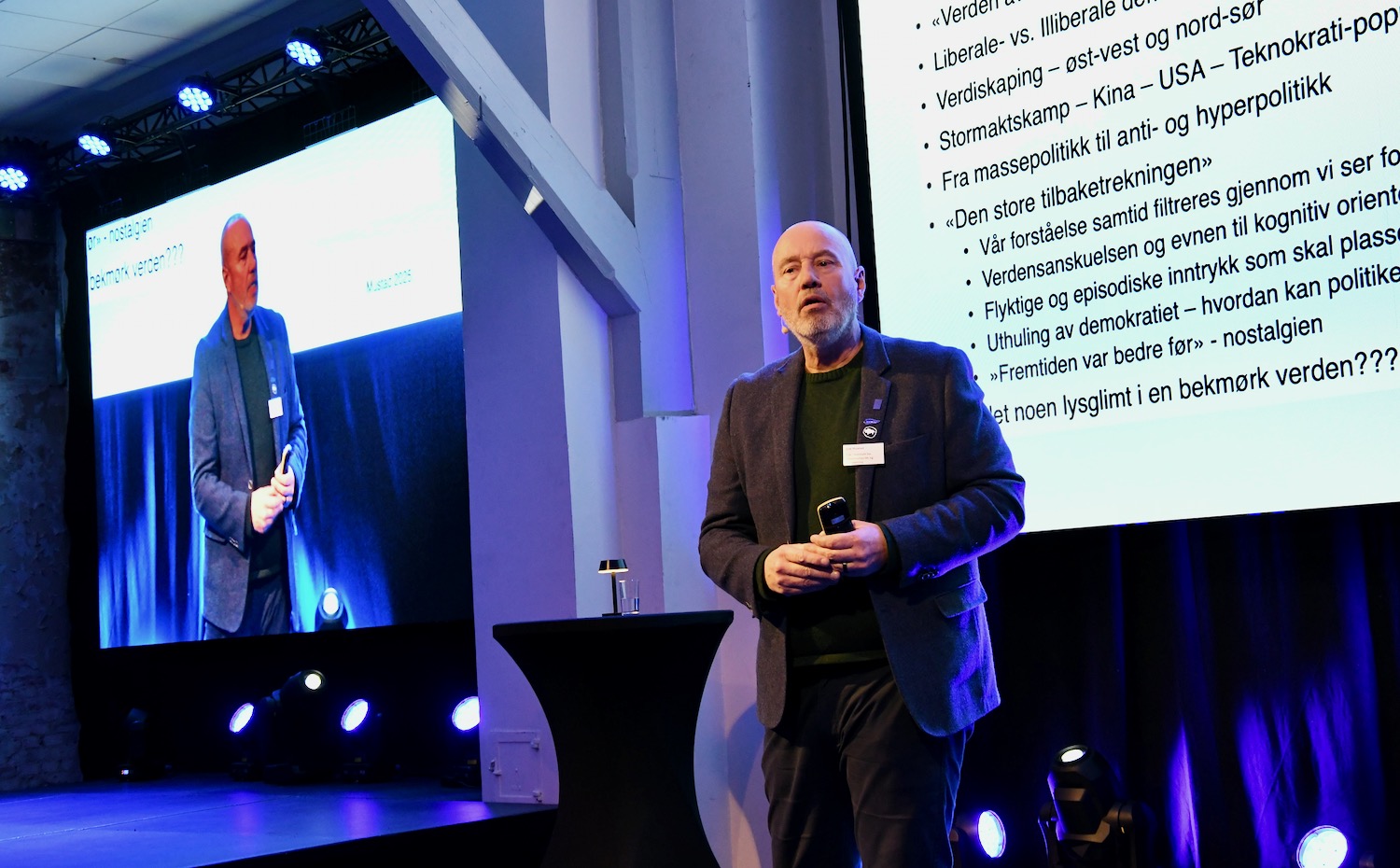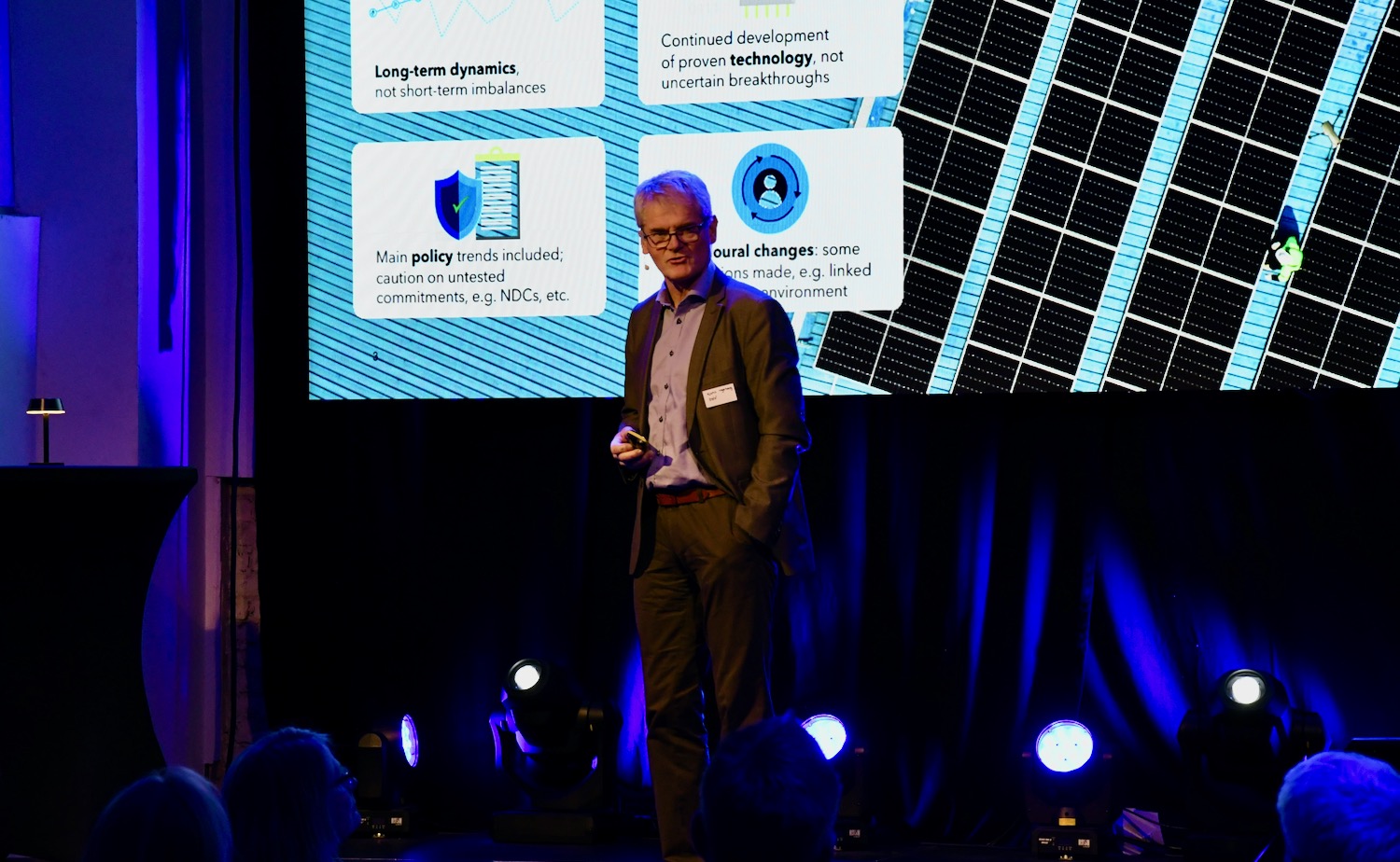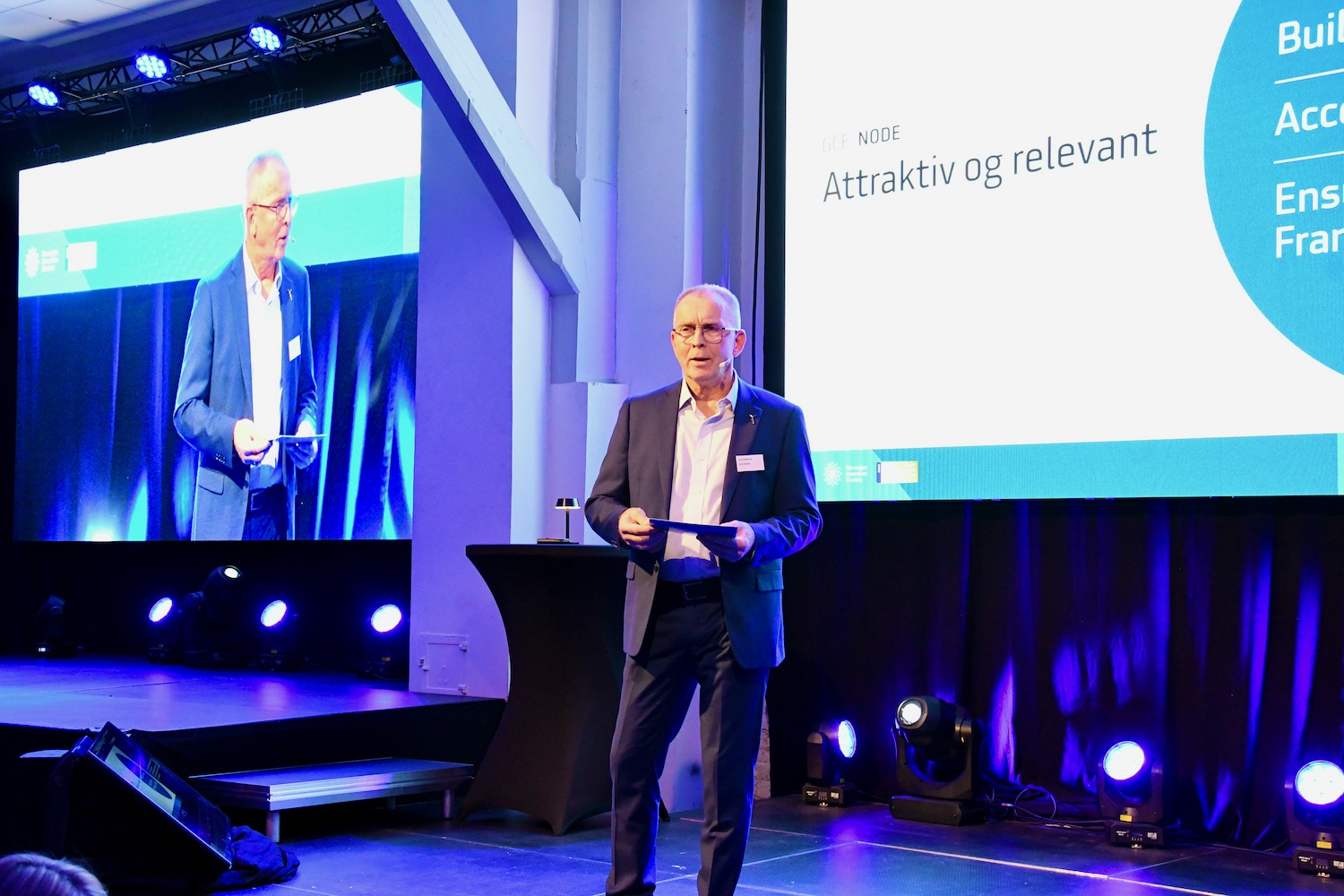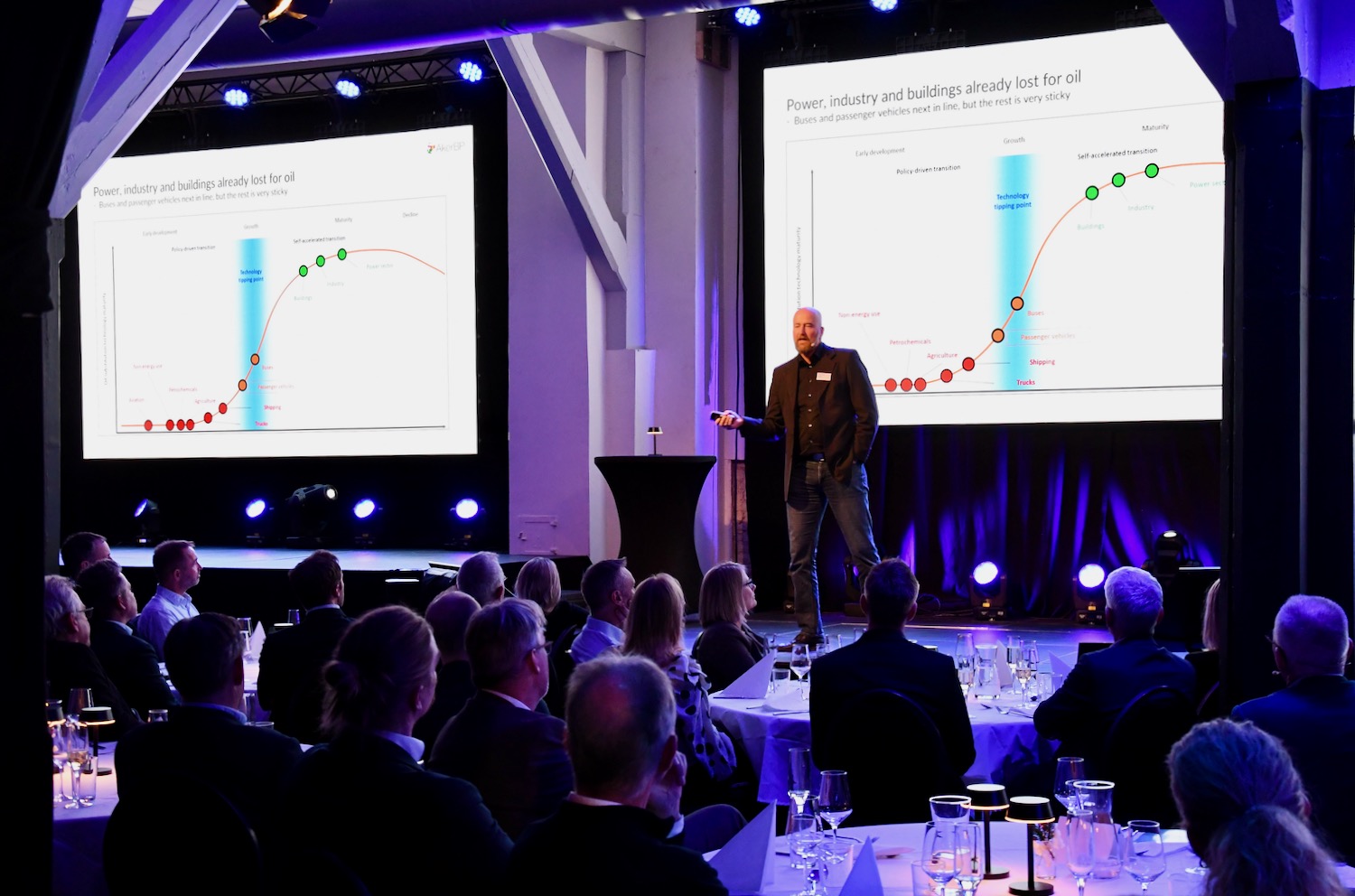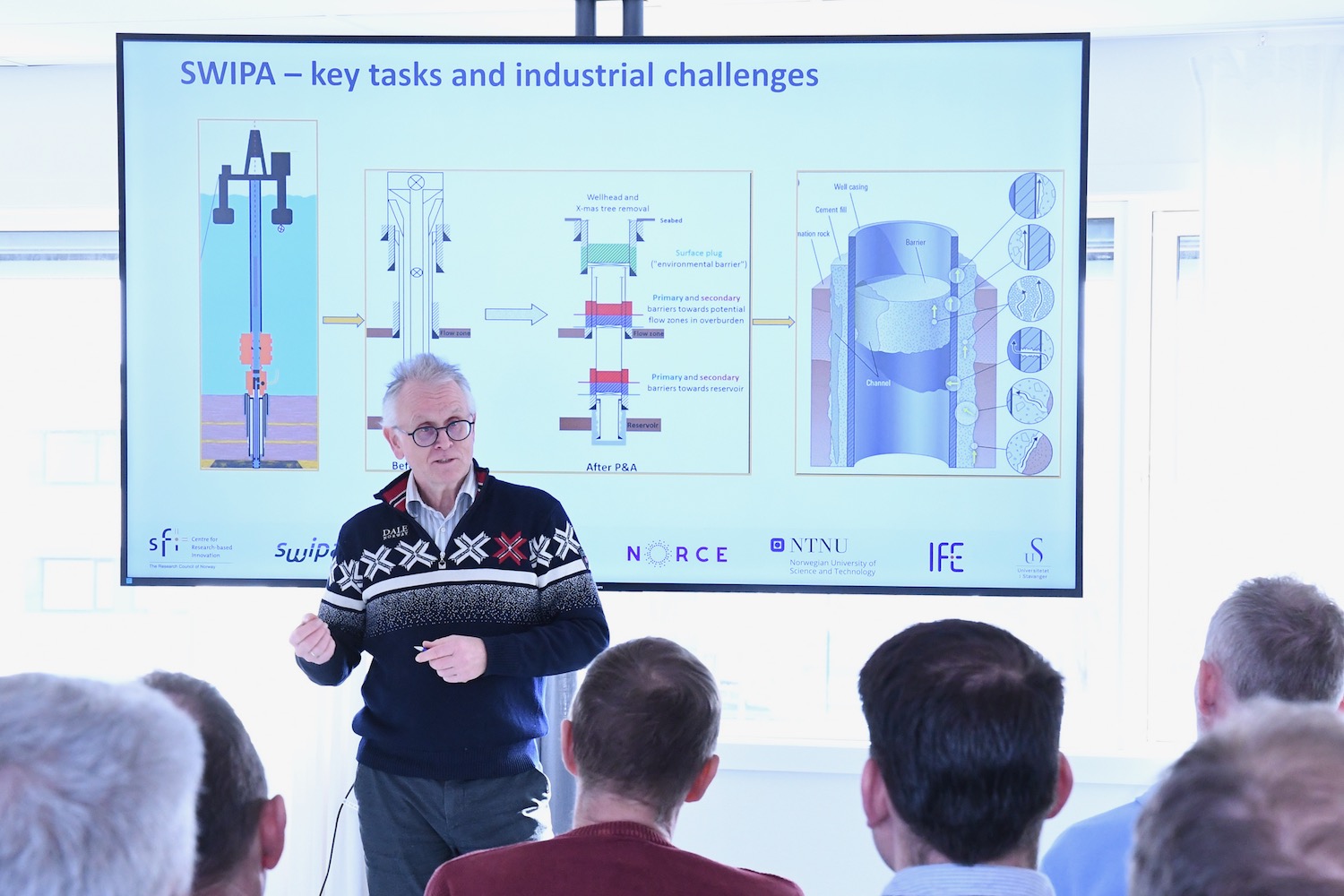“While the European continent races toward renewables, oil and gas remain the backbone of its energy system — and Norway is the most reliable supplier,” says Torbjørn Kjus, Chief Economist at Aker BP.
He was a keynote speaker at the GCE NODE Executive Forum in Kristiansand Thursday night – providing an in-depth analysis of the current and future state of European energy supply and Norway’s role in it.
Norway is the largest supplier of oil and gas to the EU. In 2024, Norway exported 1,028 TWh of oil and 1,395 TWh of natural gas, with nearly all of it flowing to European markets.
The European Union’s own production is negligible. Import dependence has surged to 89% for natural gas and 92% for oil. This leaves Europe exposed to suppliers in politically unstable regions, raising the stakes for secure, democratic sources like Norway.
“If democracy, corruption, stability and freedom matter to the EU, then it is not difficult to see who the EU should prioritize for their oil and gas imports requirements,” said Kjus.
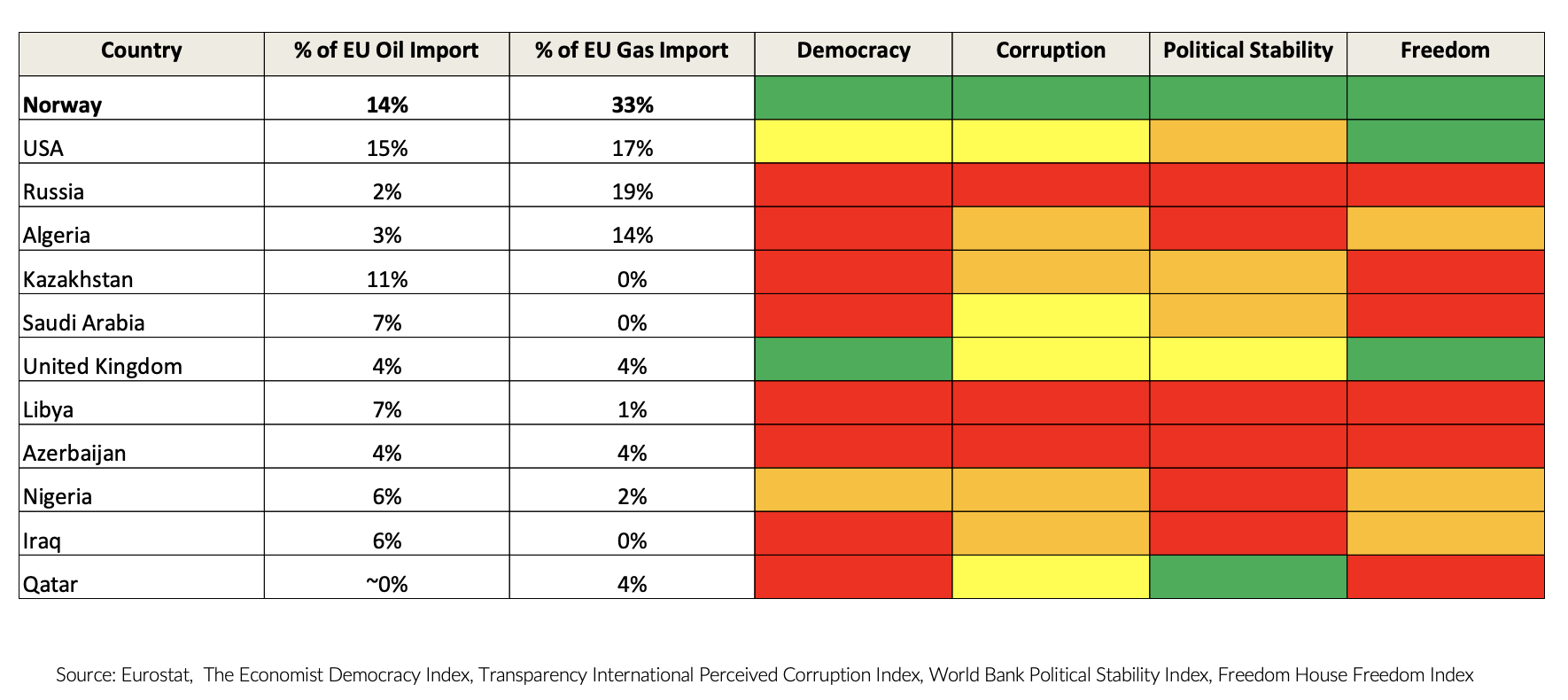
While some call for Norway to stop searching for more oil and gas reservoirs, Kjus warned that halting global oil and gas exploration would trigger immediate economic pain: soaring energy prices, food inflation, and geopolitical instability. While renewables and nuclear are expanding, they cannot yet replace hydrocarbons at scale.
“Cheap and abundant energy has been the foundation of prosperity,” Kjus noted, highlighting how oil and gas lifted billions out of poverty and remain essential for agriculture, industry, and even renewable infrastructure through petrochemicals.
Looking ahead, Europe’s reliance on weather-dependent solar and wind raises new risks. Seasonal drops in solar output, synchronized wind patterns, and “Dunkelflaute” periods of low renewable generation could leave the grid short by hundreds of terawatt-hours. Covering these gaps with batteries or hydrogen would cost trillions, making natural gas the only realistic backup.
Without new discoveries in Norway, production of oil and gas will decline by 95% in 2050 compared to current levels. This would have serious consequences for Norwegian economy and put Europe in a tough spot. With stable governance and trusted institutions, Norway is uniquely positioned to be Europe’s preferred supplier.
Despite ambitious goals, the EU has barely reduced the consumption of oil in recent years. Europe’s green ambitions must be balanced with energy realities. To keep the lights on, Norway must keep drilling.

